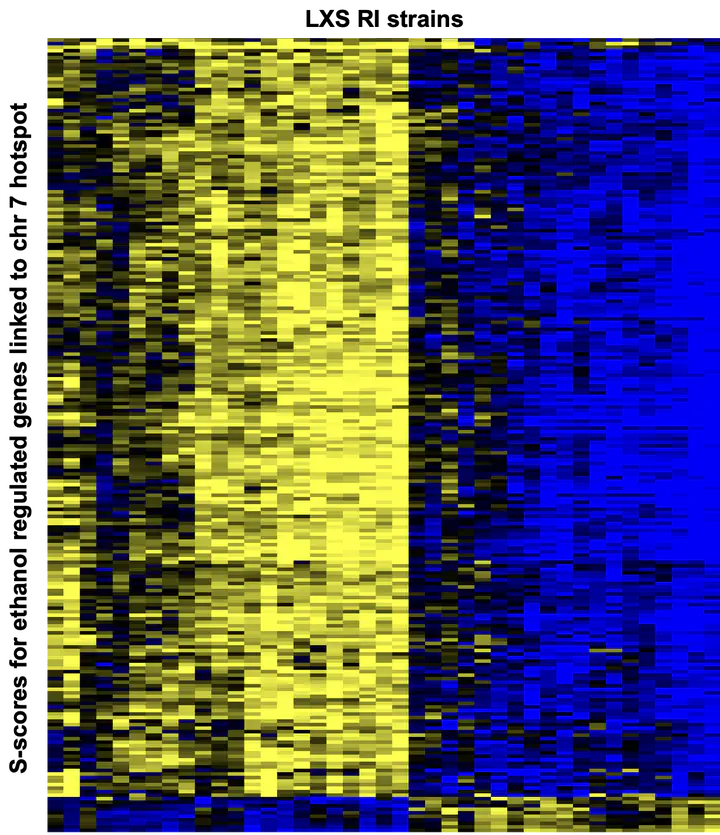Expression genetics analysis of responses to acute ethanol in mouse prefrontal cortex

Abstract
Responses to acute ethanol are informative predictors of future drinking behavior and risk for developing alcoholism. As with other drugs of abuse, the transition from ethanol use to dependence is thought to involve drug induced plasticity of the mesolimbic dopamine pathway. Recent microarray studies have demonstrated robust changes in gene expression in this pathway following exposure to acute ethanol. We have sought to further characterize gene expression networks highly responsive to acute ethanol and identify mechanisms underlying their regulation. Here we report studies on 42 strains of the Long Sleep × Short Sleep (LXS) panel of recombinant inbred mice following intraperitoneal injections of either saline or ethanol (2g/kg). Global gene expression levels in prefrontal cortex were measured in LXS strains from both treatment groups using Affymetrix Mouse 430A 2.0 microarrays. The combination of expression data and the dense set of markers used to genotype the LXS panel enabled us to investigate the genetic consequences of acute ethanol exposure using several complementary approaches. First, analysis for ethanol responsive genes using a custom filtering scheme identified expression patterns of 1,804 probesets as significantly different between treatment groups across the LXS panel with some showing strikingly divergent ethanol responses across strains. Second, we performed expression quantitative trait locus (eQTL) mapping to identify chromosomal regions that modulate ethanol-induced changes in gene expression using an algorithm (S-score) specifically developed to measure the significance of change in expression between oligonucleotide arrays. Surprisingly, this linkage analysis suggested that robust changes in global gene expression induced by ethanol are mediated primarily by 5 loci. Indeed, of the 4,868 probesets with an eQTL LOD score ≥ 3, nearly 50% were linked to hotspots located on chromosomes 3, 7, 15, 17 and 18. Genes producing cis-eQTLs within these support intervals are strong candidates for the key effectors of downstream expression changes observed following ethanol consumption and thus, may be important instigators of neuroadaptations occurring with ethanol use and abuse.